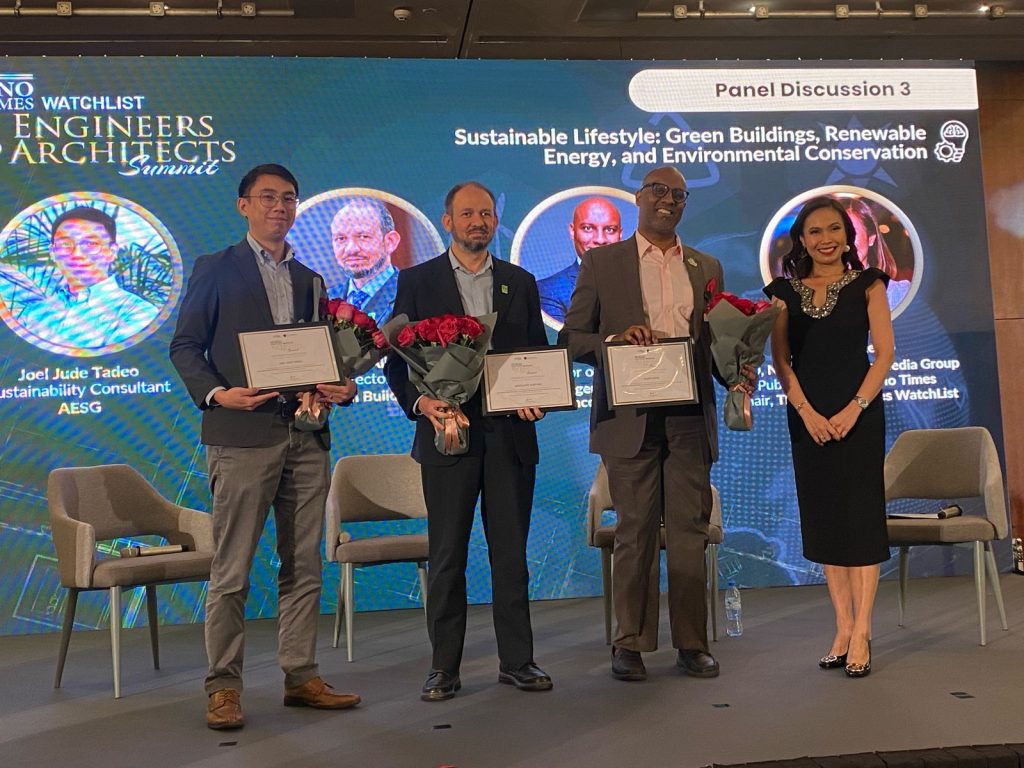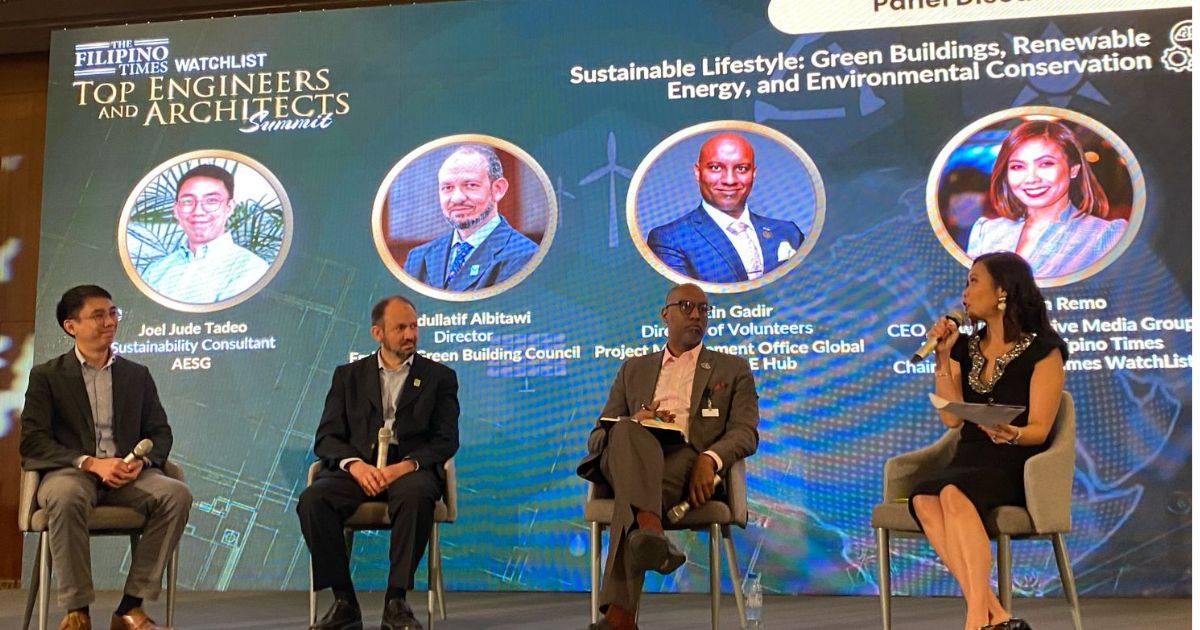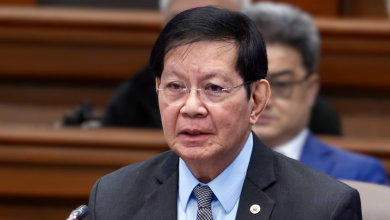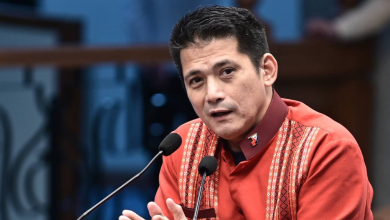According to Mazin Gadir of the Project Management Office Global Alliance UAE Hub, operating rooms in the ICU are one of the most impactful and harmful on the planet when it comes to carbon emissions.
This was brought up during the panel at The Filipino Times Watchlist: Top Filipino Engineers and Architects Summit 2024 which tackled “Sustainable Lifestyle: Green Buildings, Renewable Energy, and Environmental Conservation.”
The panel was led by Mazin Gadir, the Director of Volunteers for the Project Management Office Global Alliance UAE Hub, Abdullatif Albitawi, the Director of Emirates Green Building Council, and Joel Jude Tadeo, the Sustainability Consultant at AESG, and moderated by Dr. Karen Remo, CEO and Founder, New Perspective Media Group, Publisher, The Filipino Times, and Chair of The Filipino Times Watchlist.
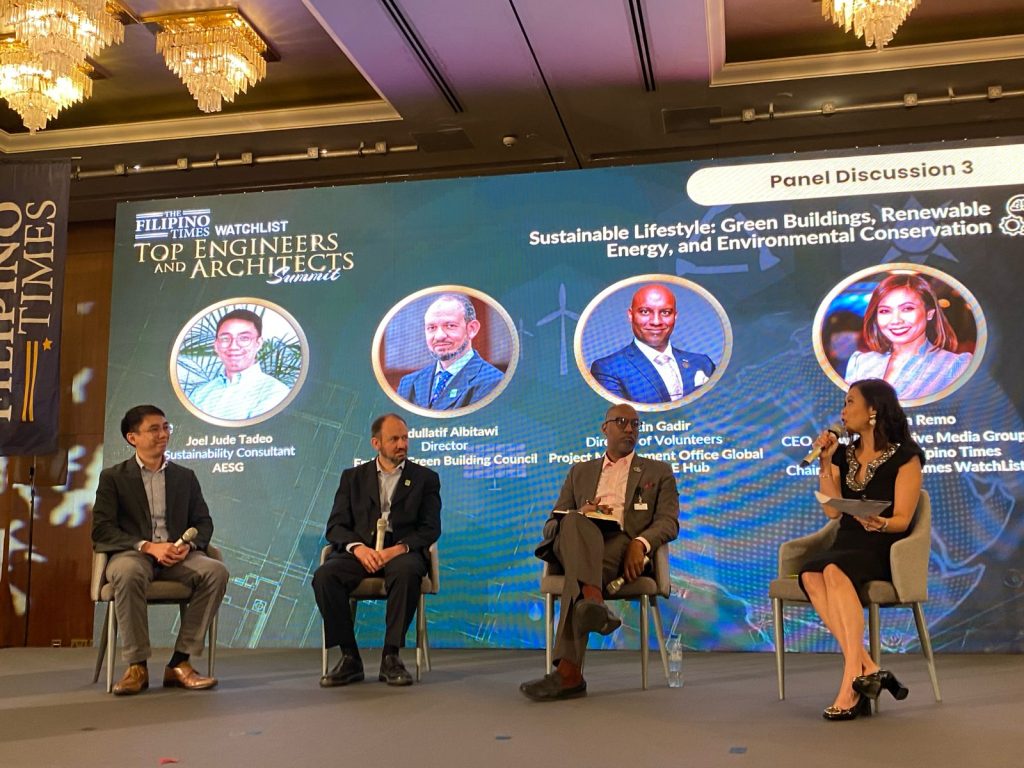
Healthcare has contributed around 4% worldwide in terms of carbon emissions. Gadir shared that the healthcare systems in the Netherlands have reduced to 6.7 which means that they have started analyzing a bit further in the hospital.
“We have to think of how we treat these operating rooms. How do we look and work with those openings to make them more climate-friendly but more impactful in lessening the carbon footprint?”
One of the suggestions that he shared was that it is important to identify and reduce waste in operating rooms to minimize climate impact.
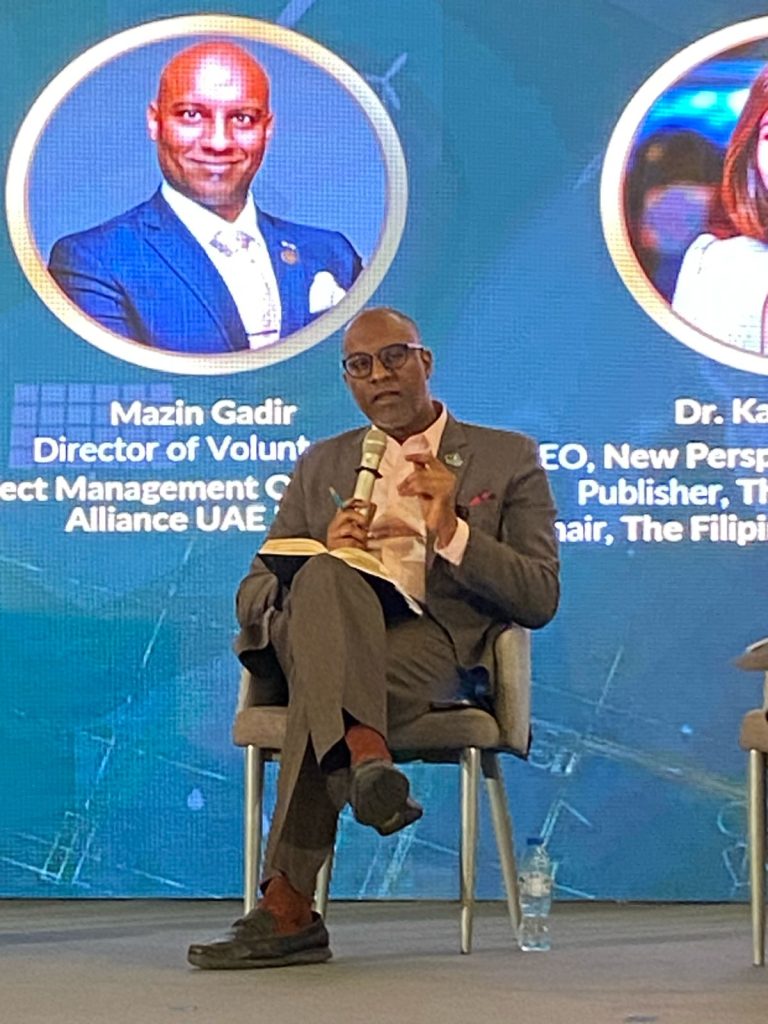
Meanwhile, in buildings and construction, Abdullatif Albitawi shares three challenges in implementing sustainability. These are the following: (1) regulations and policies; (2) the perception of it being expensive; and (3) awareness.
“Human nature, it seems, that we don’t do things unless we are forced to do it. Now, how do we force people to have a look?” he said.
“Have a law regulation where it says ‘you have to do this’ or ‘you will be penalized if you don’t do this’.”
He also shared that some perceive sustainability as expensive or costly. “Maybe this is the transition period where you introduce new technologies, new materials that will implicate some higher cost.”
“On the long term, we look forward that there is no additional cost when it comes to sustainability implementation,” he added.
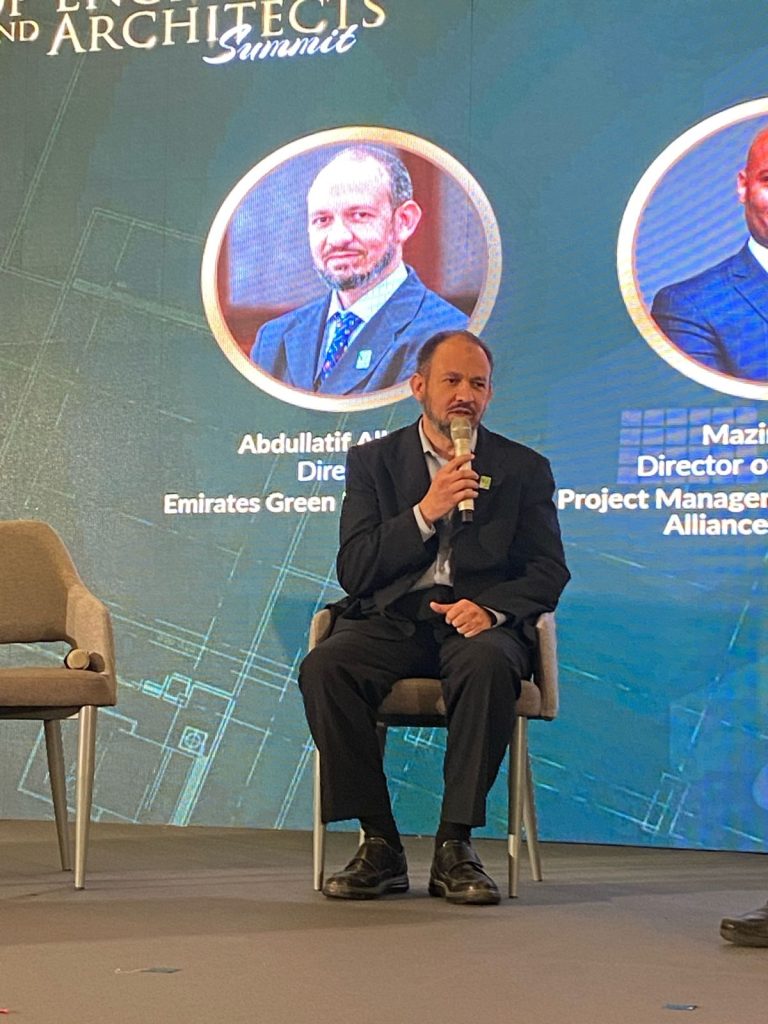
Dr. Karen Remo then shared that upon speaking with developers from developing countries she found out that an increasing number do not want to be LEED buildings anymore because they find it really expensive.
She then asked, “How do we tell them to actually take on the challenge to become a LEED certified building?”
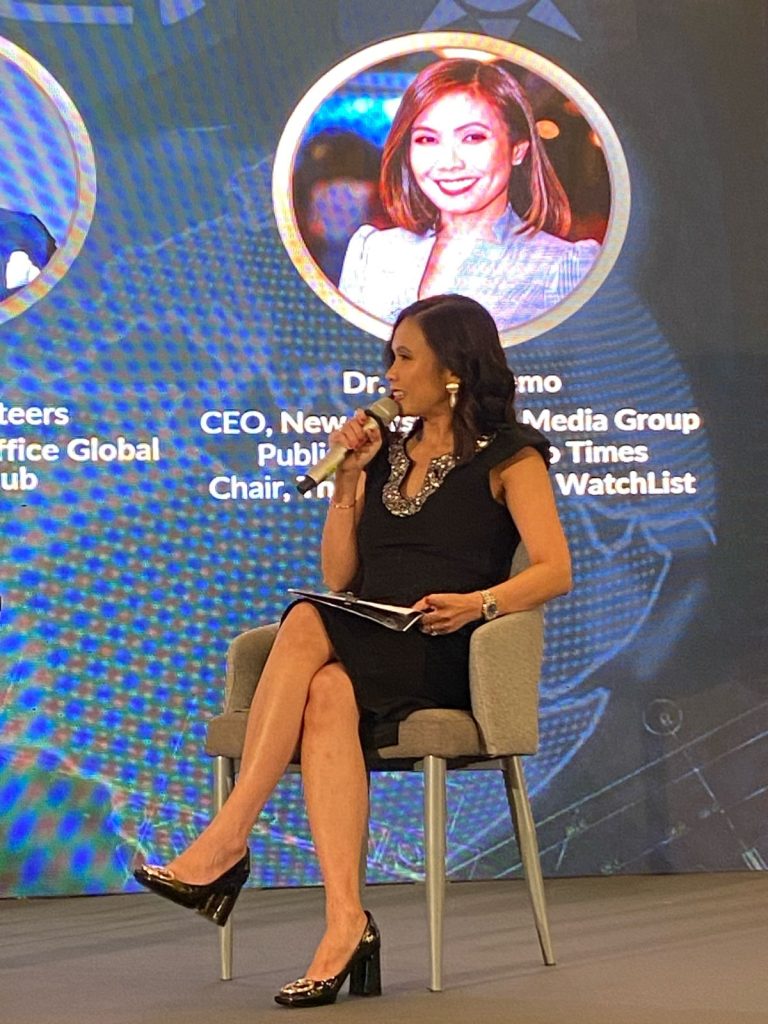
“The certificate itself shouldn’t be the target,” Albitawi answered.
“You could have a very efficient payment when it comes to energy consumption, water consumption, waste generation, and it’s not certified,” he added.
Albitawi revealed that it is the certification process that is expensive and it is up to the developer if they want to obtain the certificate. According to Albitawi, the certificate is the recognition that the building is meeting certain requirements.
“You don’t have to be LEED certified,” he added, as long as there is implementation and different measures are taken.
Joel Jude Tadeo also shared that he disagrees with the developers that are saying that a LEED project is expensive and difficult to maintain.

“Stick with the green buildings first. Once we get them down, we can go to you know, the other rating systems,” he shared.
It takes a consistent sustainable lifestyle to compensate for the greenhouse gases emitted. There is a need for more green buildings, the use of renewable energy, and environmental conservation in order to address climate change.
The Filipino Times Watchlist: Top Filipino Engineers and Architects in the Middle East Summit 2024, organized by the New Perspective Media Group, featured notable individuals from the engineering and architecture industry and UAE government officials held at the Radisson Blu Hotel Dubai Deira Creek on March 1, 2024.
